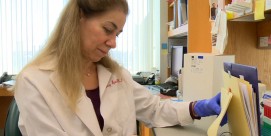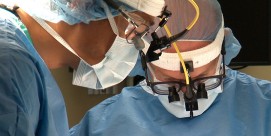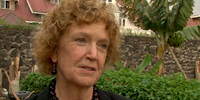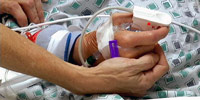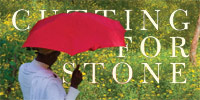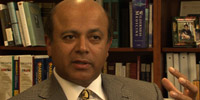Tag: Medicine
“Our main goal is not to cause any harm or additional stress to families,” says Nancy Spinner, head of genomic diagnostics at Children’s Hospital of Philadelphia. More
“If there’s any way to avoid getting a blood transfusion, one is better off in general if they can avoid it,” says Dr. Abe Steinberger, a neurosurgeon at Englewood Hospital in New Jersey. More
In New York, orthopedic surgeon Joseph Dutkowski specializes in treating severely disabled patients. He is motivated, he says, by his Catholic faith. More
He buries the poor, feeds the hungry, rescues the injured, houses the homeless, and says the goal of his orphanage for Haitian children is “to raise the children together so they have memories of their own restored childhood and that later in life they become aunts and uncles to each other’s children and their family regenerates after a generation.” More
“If we can bring in some light, the darkness will not overcome the light, and that’s where faith is. We believe that.” More
“The whole system is greased to pay hospitals and others for expensive things people might not even want” at the end of life, says Dr. Lachlan Forrow, director of ethics and palliative care at Beth Israel Deaconess Hospital in Boston. More
“It’s impossible not to ration, it’s irrational not to ration, and it’s unethical not to ration” medical care at the end of life, says this professor of ethics at Harvard Medical School and director of the Harvard University Program in Ethics and Health. More
Expensive cancer-fighting drugs are sparking ethical debate about the tremendous costs and small benefits of some new treatments. More
The vocation of healing is a central theme in the acclaimed novel “Cutting for Stone” by Abraham Verghese, who writes that doctors “must believe that ministering to others will heal our woundedness. And it can. But it can also deepen the wound.” More
“Patients require that one-on-one encounter, the Samaritan function of being a physician,” says writer and Stanford Medical School professor Abraham Verghese. “I’m convinced that when the physician examines the patient, this is an incredibly important ritual.” More

